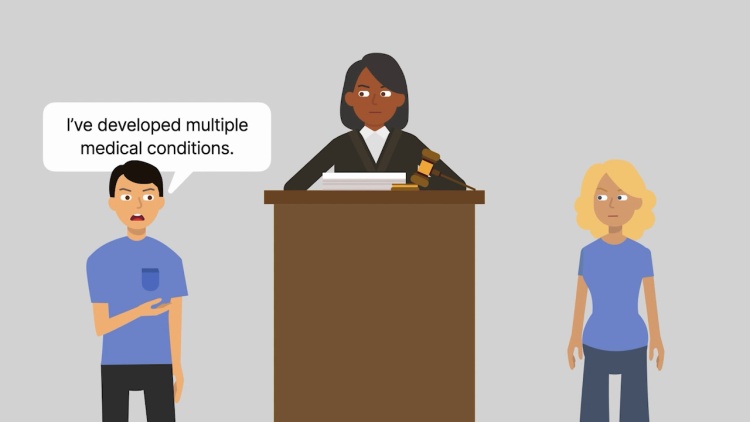Miles v. Miles
South Carolina Supreme Court
711 S.E.2d 880 (2011)
- Written by Rose VanHofwegen, JD
Facts
When James Miles (plaintiff) and Theodora Miles (defendant) divorced, they reached a settlement agreement that the court incorporated into its final divorce order. The agreement required James to keep Theodora on the health and dental insurance provided by his employer until she remarried or got a job with insurance benefits. Otherwise, the agreement waived any spousal support. It did not contain any language limiting whether the parties could later seek modifications. Over the next six years, James had seven surgeries due to colon cancer, a shoulder injury, and a triple bypass, which left him totally disabled. His disability income of $1,830 monthly was less than half his previous wages as a police officer. The insurance premiums he paid for Theodora cost $370 per month, and the premiums he paid as part of his child support also increased. Meanwhile, Theodora’s annual income increased from $28,000 to $45,000. James filed a petition to modify the divorce order to terminate his obligation to pay Theodora’s premiums. The family court found the provision similar to a division of property, and therefore not modifiable, because the agreement waived alimony. The appellate court affirmed, and James appealed to the state supreme court.
Rule of Law
Issue
Holding and Reasoning (Hearn, J.)
What to do next…
Here's why 907,000 law students have relied on our case briefs:
- Written by law professors and practitioners, not other law students. 47,100 briefs, keyed to 996 casebooks. Top-notch customer support.
- The right amount of information, includes the facts, issues, rule of law, holding and reasoning, and any concurrences and dissents.
- Access in your classes, works on your mobile and tablet. Massive library of related video lessons and high quality multiple-choice questions.
- Easy to use, uniform format for every case brief. Written in plain English, not in legalese. Our briefs summarize and simplify; they don’t just repeat the court’s language.





